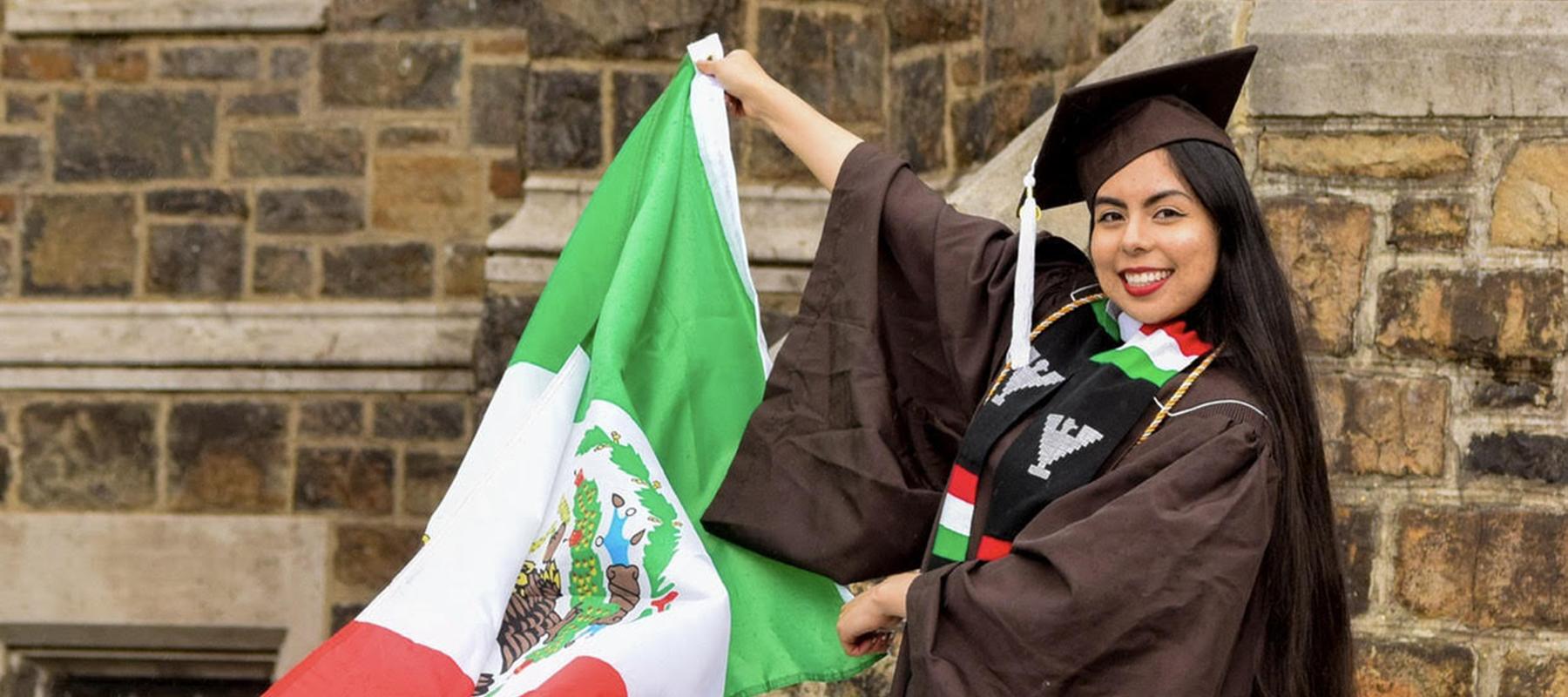Diana Rivas Garcia ‘19 grew up in Senguio Michoacán, Mexico before moving to the United States at 11 years old. Thirteen years later, she will return to Mexico on a Fulbright-Garcia Robles Scholarship for the 2020-2021 school year.
In Mexico, Rivas will spend half her time teaching English in a school and the other half conducting a research project. As part of her application, Rivas was asked to explain why she wanted to teach in Mexico as well as what else she would do while she was there.
“The second part of the application is a blank canvas that you have to create from scratch,” Rivas said.
While common projects include volunteer work or artistic ventures, Rivas was inspired by her background in economics to create a socio-economic research project.
Rivas will use her time to learn about how families in Mexico save money and pay for their basic necessities. Her goal is to eventually gain insight into the effect that this has on their children’s educational attainment.
“Let’s say if a family has a store, that’s considered pretty stable. How does that affect how often their children go to school compared to children whose parents sell things on the street?” Rivas said.
While Rivas’ goal is to find some type of pattern, she understands that this will be difficult, partly because the already short time-frame for the project was shortened due to the COVID-19 pandemic. The scholarship was scheduled to begin in August but will now be delayed until January 1.
It is impossible to ignore the implications that COVID-19 will have on her work, even once she arrives on site; the pandemic has drastically affected economies across the country and put low-income families in particularly vulnerable financial situations.
“I’ll have to really gain their trust first, since talking about money isn’t easy.” Rivas said.
While Rivas anticipates some difficulties, she looks back at her undergraduate coursework which helped to fuel her passion for helping improve people’s economic well-being. Rivas received a joint degree in economics and international relations with a second major in Chinese.
Rivas said, “During my last year at Lehigh I took a class called Poverty and Development - it’s an IR class - and I realized that that’s what I wanted to do: work toward helping third-world countries economies.”
This realization did not come without trial and error.
“It was a whole ride,” Rivas said. “I applied for a Fulbright my senior year but it was in IR. In my essay I talked about wanting to work with the U.S. defense, but that was just me looking up on Google ‘what to do with an IR major.’ Working for the defense seemed pretty cool, but I wasn’t too passionate about it. This time I’m very passionate about what I’ll be studying”
Rivas’ desire to apply for a Fulbright in Latin America was a clear choice given her Mexican heritage, yet there was still much to learn. Given that she already spoke Spanish, Rivas opted to study Chinese language in college. She spent a summer in China through Lehigh’s Iacocca International Internship Program, eventually deciding to return for a full-semester study abroad. After years focused on studying the Chinese economy, Rivas shifted her focus toward learning about Mexico’s economic development and trading partners prior to applying for the scholarship.
“I had to start from scratch,” Rivas said. “I read so many books about microfinance the summer before applying because I just needed to know what I would get myself into.”
But this success was not achieved alone. Rivas recognizes how instrumental the Office of Fellowship Advising was to her success.
“They (The Office of Fellowship Advising) were in it so hard, helping me with everything,” Rivas said. “I owe a huge part of the acceptance to them since I couldn’t have done it by myself.”
Advisors sat with Rivas to brainstorm ideas for the research project. After she became a semi-finalist for the scholarship, they held mock interviews to help her prepare. Rivas said she was surprised to walk in and see that the mock-interview was being conducted in Spanish to emulate the real interview, which is held in the scholarship destination’s language.
Rivas said that the practice interview was invaluable in preparing for the real interview, where she was asked questions regarding her Mexican background and how it would be perceived to present herself as American. She answered that Americans have diverse backgrounds, which she represents.
“I don’t deny my Mexican roots,” Rivas said, “but I consider myself an American.”
